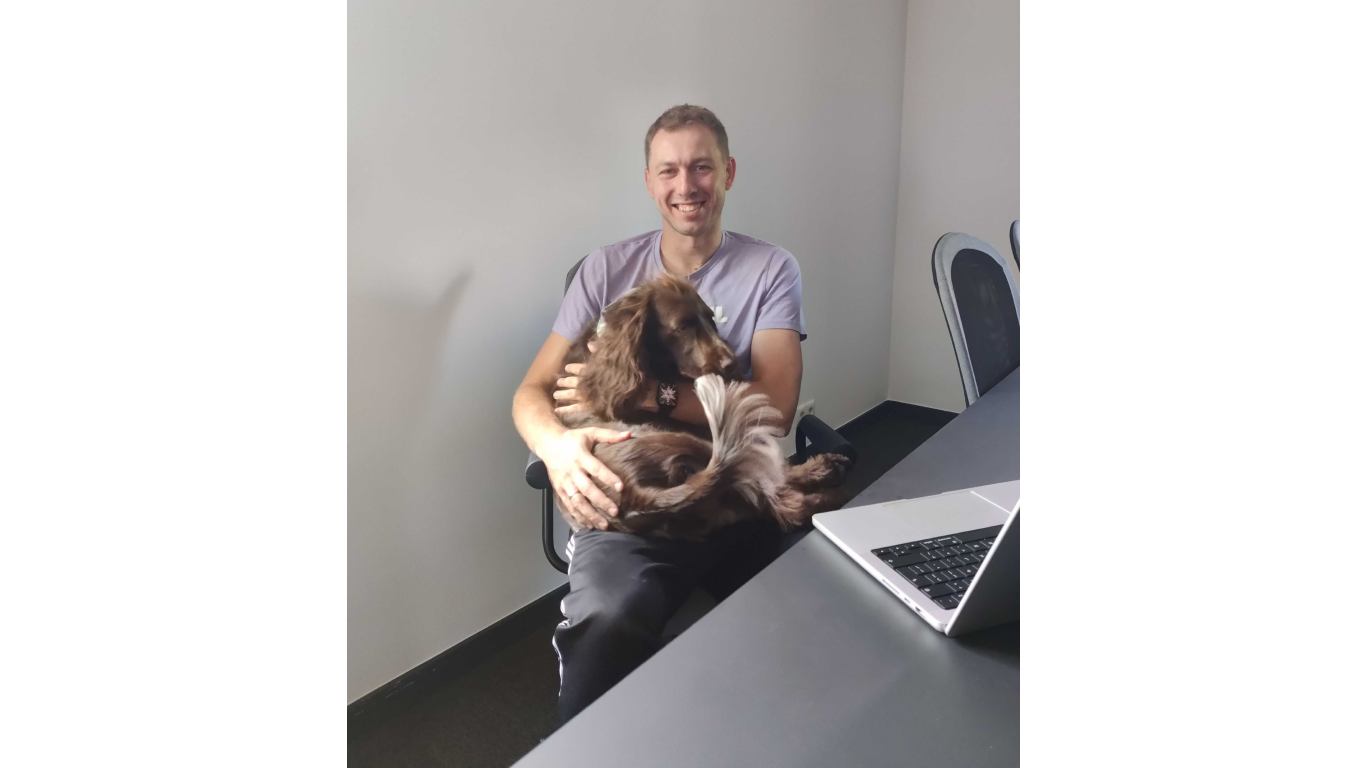Understanding the Bigger Picture in Programming. Patryk’s Career Journey
Patryk shares his biggest challenges in software development, why he needs to understand the big picture before writing any line of code, and what helps him reset after work. Meet Patryk, a Senior Backend Developer at Bright Inventions.
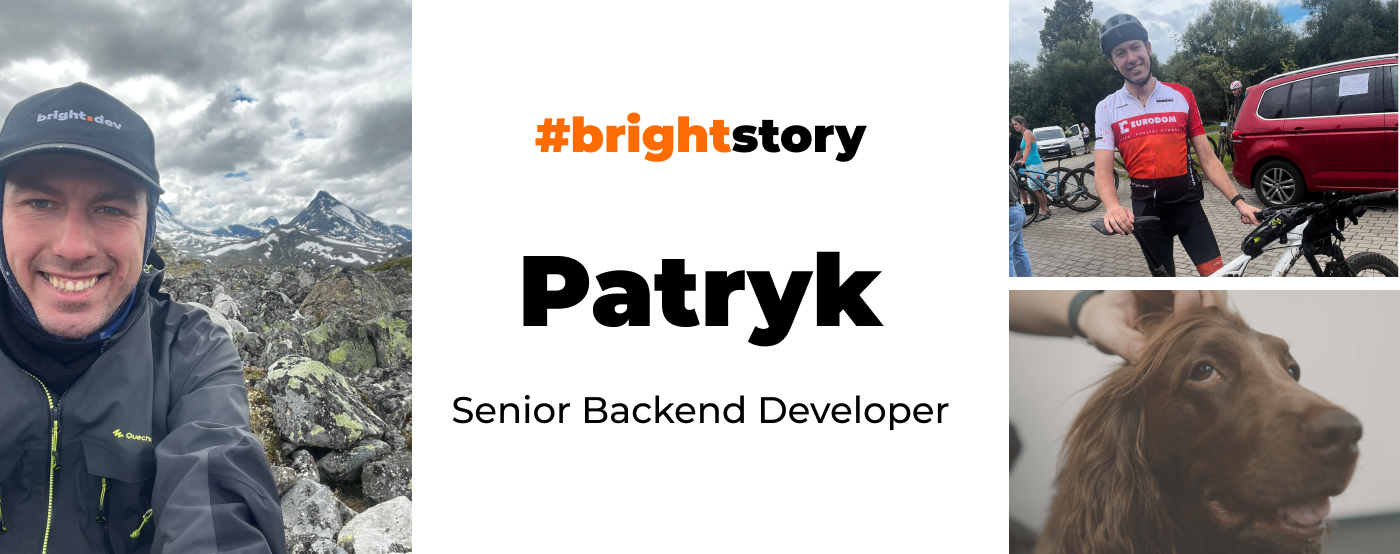
Even as a child, you were interested in programming but you chose civil engineering in college. Why?
Honestly, I don’t really know – I guess I was a bit naive. I didn’t think it through; I just thought civil engineering sounded cool. But later I realized it wasn’t for me. I dropped out in my third year and switched to computer science, though I never actually graduated.
What has been your biggest challenge so far in your career?
Interestingly, technical challenges don’t really stick out, I feel like every tech problem has a solution. For me, communication is tougher – even within the team, just dealing with frictions or misunderstandings can be way more challenging.
What is a bad code in your opinion?
The code that is not understandable while reading and impossible to change.
How can you fix that?
Well, there are many books covering that subject so there’s no single answer. Maybe being open is a good start. You should think about how the code might be used in the future, and remember that it will probably be modified. Be open to any possibility, and don’t focus only on completing the actual task. Our work goes beyond that, or at least it should, if we want to write clean code.
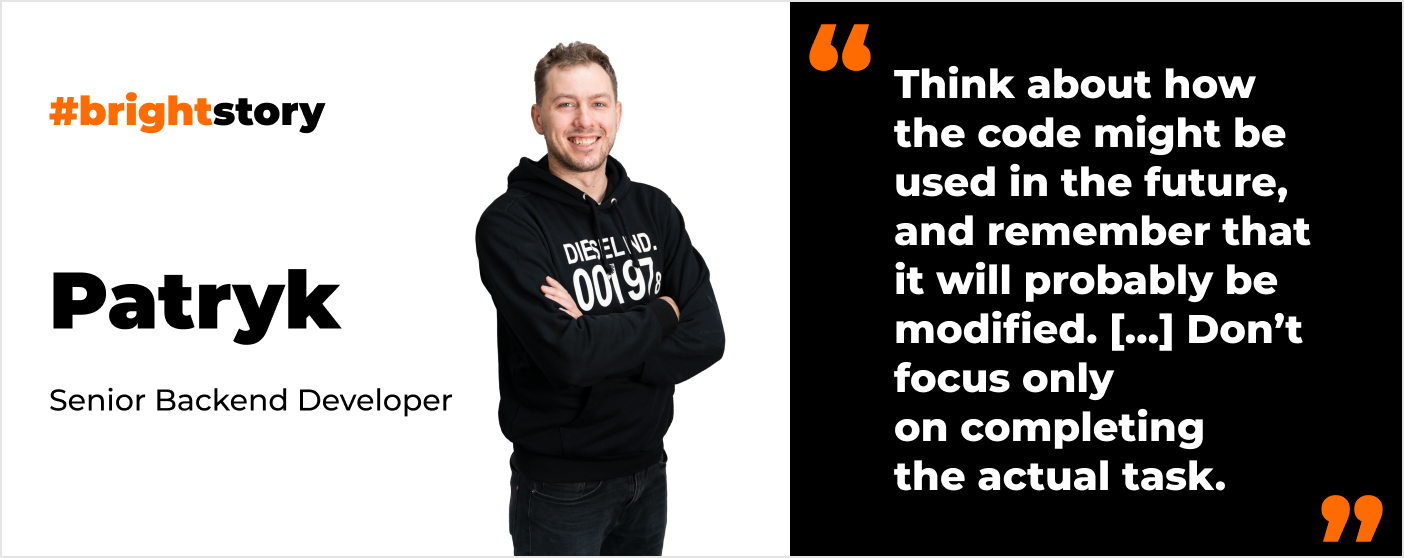
But what if you need to quickly deliver results – for example, for a startup that needs a feature added fast?
You can balance that. For sure, clients can push us and it doesn’t always have to be about profit. We have been working on an app for a humanitarian agency for years, and sometimes we need to quickly add a feature because people are starving. Therefore the organization needs a way to provide them with payment cards so they can buy groceries and other necessities for themselves and their families. We can’t just say, “Wait, we need to write clean code first, people can wait.”
But it all comes down to communication – we explain to the client that we need to do it fast, with some shortcuts, but after it’s launched we need a sprint to rewrite it, because otherwise it will be bug-prone. Clients are usually on board with that, it’s our job to make them aware that we can cut corners, but then we need to make up for it.
How do you use AI in your daily work?
I use ChatGPT, Cursor, Junie, and Assistant on a daily basis. Junie is great for bigger features, while Assistant works well for smaller tasks or functions.
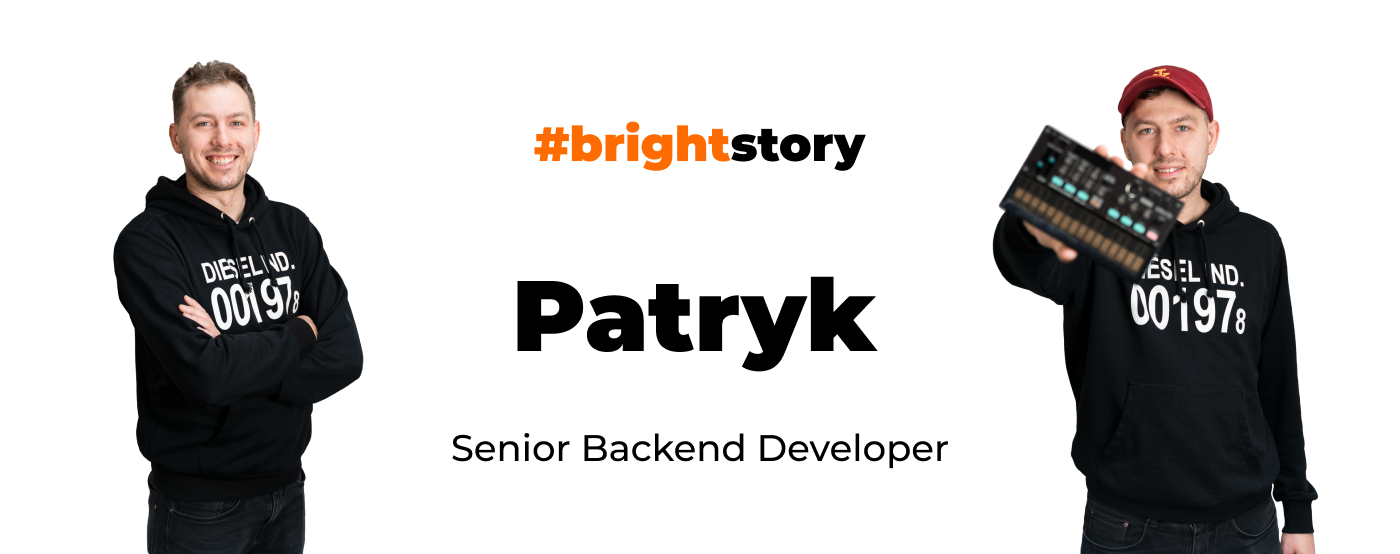
How does AI save your time?
A good example is a prototype I was building for a client with Cursor. The goal was to show them a different approach to their main feature. It took me around two days – but without AI, I would have spent maybe even a week on that.
Do you enjoy working at Bright Inventions?
I’ve been here for over five years – I wouldn’t have stayed that long if I didn’t like it. People here are kind and positive, and that’s the most important thing. In the end, it all depends on people – clients are also people after all. So it really comes down to whether we share the same vibe and understanding.
What are you working on in your current projects right now?
I’ve been doing some interesting things with blockchain. Since Parity is no longer supported, our client asked us to find the right alternative. So I had to research various blockchain clients and choose the one that would tick all the boxes required for this project. It was challenging but also very interesting.
How do you react to changes from the client? I’m asking because some developers find it difficult.
It can be frustrating but not because of the change itself, more when you don’t know the reason behind it. I don’t like when developers aren’t familiar with the context. I want to know the full picture – why some priorities are shifting.
At Bright Inventions, we work with clients who explain their business decisions, and we even give input from the tech side to help them make some of those calls. That way, the changes aren’t that frustrating after all. The last thing I’d want is to just write code thoughtlessly.
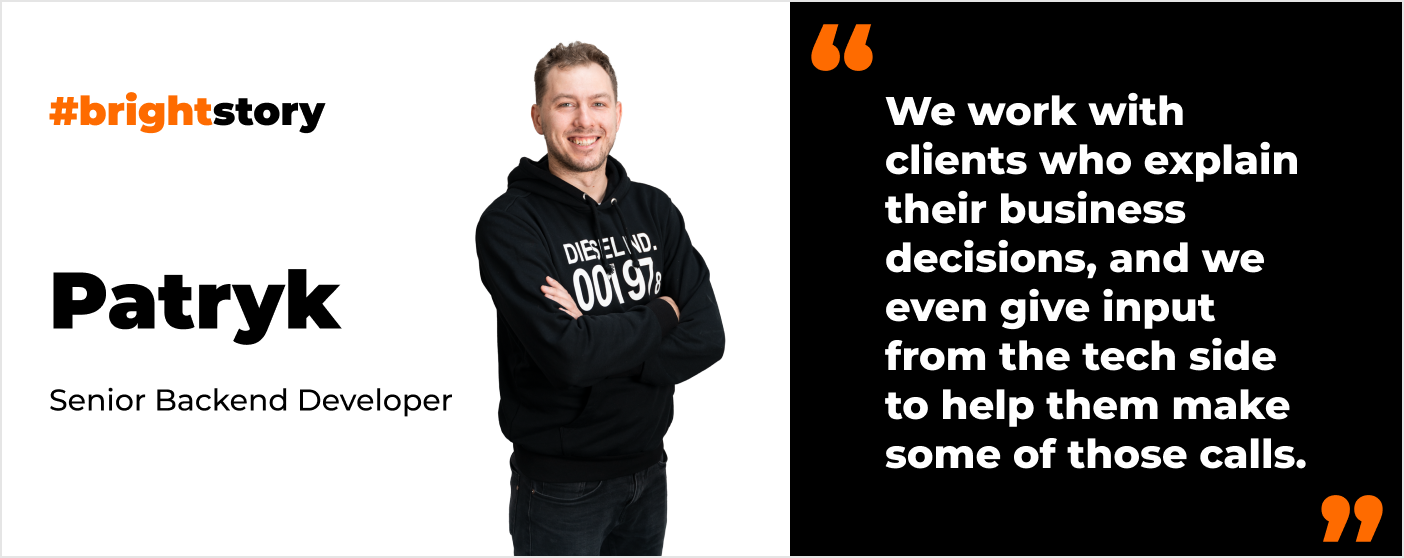
After hours you make music. Do you have a dream to be a professional music producer?
Not really, I treat it more as a hobby. I like creating pieces from scratch, and sometimes I meet with friends and we make something together just for fun. Recently, I also started learning guitar and piano. I’m curious to see how that will turn out.
What else are you doing after hours?
I ride MTB (mountain biking) and sometimes take part in competitions, but I treat it more as another workout session. I also go for walks with my dog Tesla, and I regularly go mountain hiking. For example, I went with a friend to Norway, we slept in a tent and hiked for about a week. Now my goal is to do it in the Alps – a 10-day hike with just a tent and a backpack. A perfect detox from technology, and a great way to really rest.
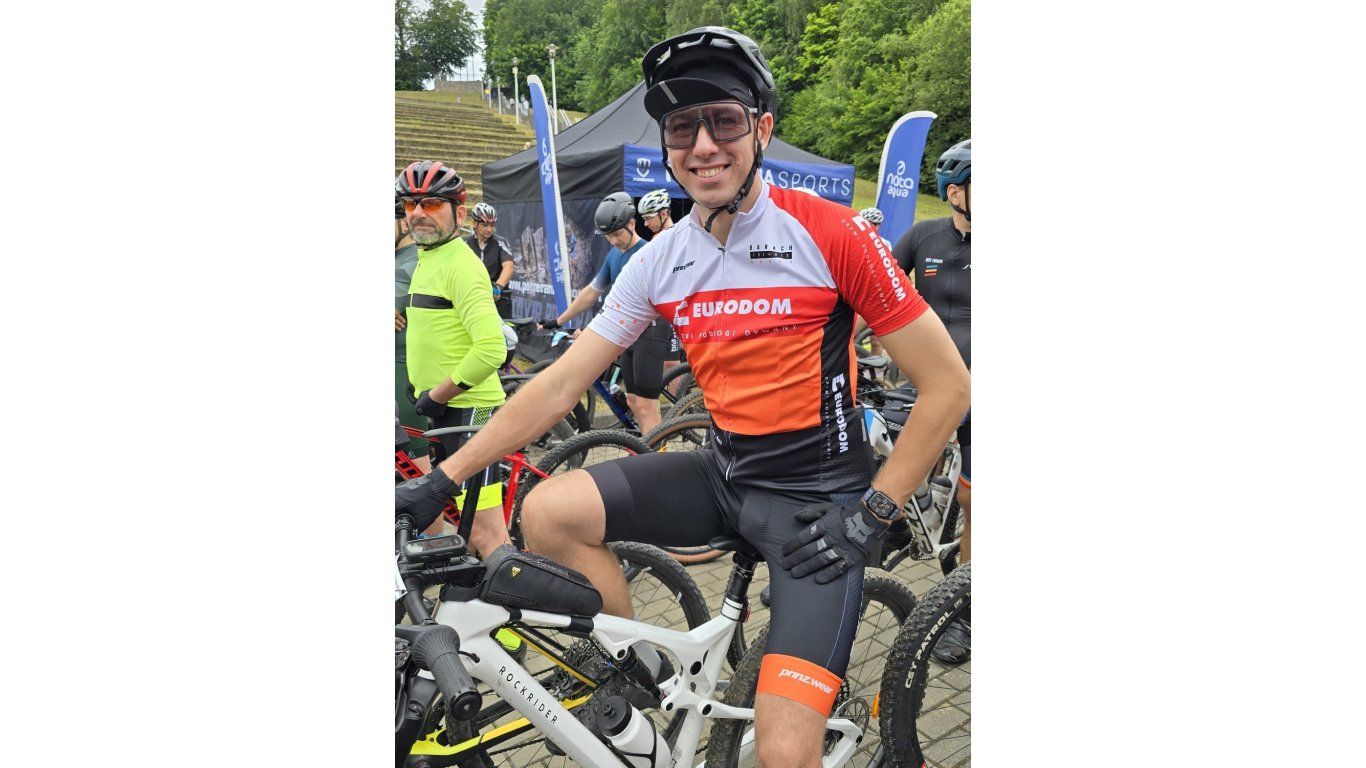
Your dog Tesla is a regular office visitor. Does she enjoy the company?
Oh yes, she’s always happy when she’s at the office. She loves to accompany me wherever I go.
